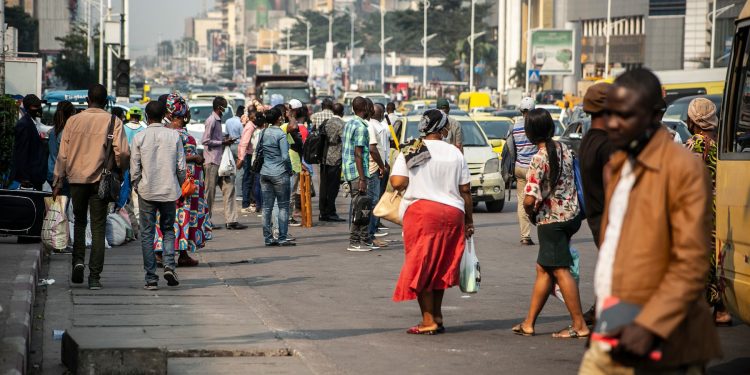The International Monetary Fund (IMF) has stated that despite rapid economic growth in sub-Sahara Africa, regional income gaps haven’t fully closed as lagging regions on the continent fall short of access to infrastructures like water, electricity, and cell phone services to name a few.
This is according to a news release by the IMF on its website
Before the pandemic, many sub-Saharan African economies grew at a historic pace with some countries having some of the fastest economic expansion in the world. Notably, Ethiopia and Rwanda had an average of over 7.5 percent growth per year over the past two decades, according to IMF.
According to data from the IMF, until 2010, African countries made significant progress in narrowing regional income inequality (differences in output per capita across regions of a country), a time when other parts of the world saw inequality either increasing or converging slowly.
However, not all regions saw a reduction in income gaps. Furthermore, in some countries that previously experienced decades of growth, progress stalled after 2010, with regional inequalities having widened post-pandemic.
What the IMF is saying
For Africa to close its regional inequality gap, IMF pointed to some factors which it identified to have supported the reduction of inequality over the past few decades.
The fund identified macroeconomic stability as a major force in improving inequality in Africa. It said, ”Inequality tends to increase in countries with high, persistent inflation by eroding the purchasing power of consumers, reducing government spending in real terms and disincentivizing private investment.”
Trade openness was also cited as a key factor in closing inequality gap. The fund stated that “easier access to global markets supports convergence by increasing the value of a country’s resources like raw materials, which are more abundantly available in lagging regions. It also brings more workers into urban centers, which could, in turn, lead to a decline in income per capita of more urbanized regions if infrastructure development and the overall increase in economic activity in city centers are unable to keep up.”
“Strong institutions and political stability: Weak institutions impede the capacity of governments to provide services and civil wars destroy public infrastructure, raising the likelihood that regions are left behind.”
“Well-targeted investments: We used mineral discoveries as a proxy for analyzing the impact of investments on regional inequality and found that progress depends on the location. Investments that occur outside of the capital cities are the most likely to have an impact by creating jobs and promoting economic activity in lagging regions.”
IMF proposed the need for policymakers in Africa to resort to an all-inclusive policy framework. Closing the inequality in Africa will require macroeconomic stability that will give rise to inclusive growth. Also, a fashionable redistributive fiscal policy with a clear investment strategy to assist underserved regions, while strengthening institutions to ensure political stability and equitable public service delivery will further fuel this agenda.











